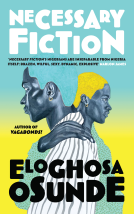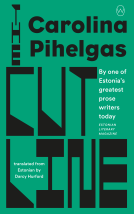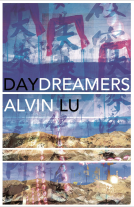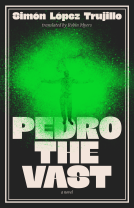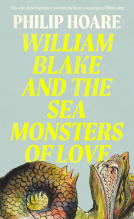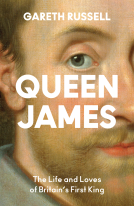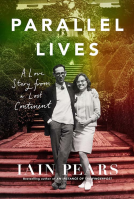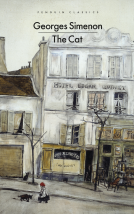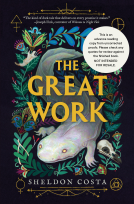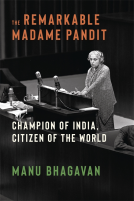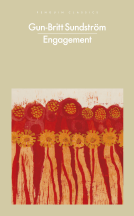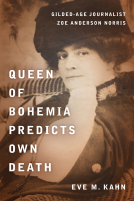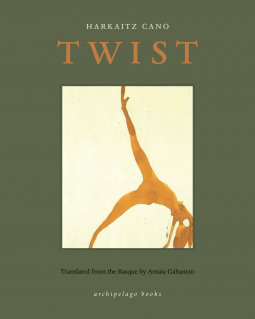
Twist
by Harkaitz Cano
This title was previously available on NetGalley and is now archived.
Send NetGalley books directly to your Kindle or Kindle app
1
To read on a Kindle or Kindle app, please add kindle@netgalley.com as an approved email address to receive files in your Amazon account. Click here for step-by-step instructions.
2
Also find your Kindle email address within your Amazon account, and enter it here.
Pub Date 27 Feb 2018 | Archive Date 15 Jan 2018
Talking about this book? Use #TwistCano #NetGalley. More hashtag tips!
Description
Set in the politically charged climate of the Basque Country in the 1980s, Twist relates the disappearance and brutal murder of two ETA militants at the hands of the Spanish army. The novel centers on their friend and fellow activist Diego Lazkano, who, since revealing his comrades to the authorities, has been tormented by guilt. In Twist, Harkaitz Cano provides a multi-vocal account of a conscience and a society in turmoil.
Advance Praise
"Narrated with extraordinary verve... We need works like these, conceived and composed without any hint of frivolity, set out on the endless task of making our world more intelligible." -- Ricardo Senabre, El Cultural
"Surgical, glittering, and poetic prose ... Cano has created a branching multiplicity of stories within a story, borrowing from the mastery of William Faulkner, Saul Bellow, or Philip Roth. Literature with a capital L." -- Hasier Rekondo, Koult
"What makes Twist such a powerful novel is precisely the fact that it does not take sides, but rather digs down into the human experience and into what makes human beings so worthy of both admiration and contempt." -- J.A. Masoliver Ródenas, La Vanguardia
"Action-packed as the twist, bitter as the tango, nostalgic as the bolero. A novel where there are no heroes, only men of flesh and bone, who can cheat and betray and abandon." -- Rosa Berros Canuria, Cuentame una Historia
"A grand novel...an intense and profound history...despite being set in the context of the Basque conflict, the novel tells us about all of friendship, of the absence and the feeling of guilt." -- Javier Rojos, El Correo
Available Editions
| EDITION | Other Format |
| ISBN | 9780914671824 |
| PRICE | US$20.00 (USD) |
| PAGES | 420 |
Average rating from 6 members
Featured Reviews
 noor i, Reviewer
noor i, Reviewer
Sublime. Perfectly detailed - though leaves the reader wondering about the truth of who killed Alfredo Trota, the national police guard and the mystery of who The Redhead is.
Thanks to the publisher for the ARC.
 Isabella K, Reviewer
Isabella K, Reviewer
No one inhabits anyone else's skin anymore
Twist, by Harkaitz Cano, is billed as a crime novel cum political thriller. In my view, it's more subtle than that: it's a meditation on memory and guilt.
It's about being in one's skin and feeling it in one's bones.
<blockquote>If you were in their skin, you would be the same, the same as them and their circumstance. "I am I and my circumstance; if I do not save it, I do not save myself." The second part of that sentence by the famous philosopher is often forgotten, who knows why. But no one inhabits anyone else's skin anymore, do they? It's hard enough to withstand our own skin, why would we think of inhabiting another's. The difference is that now you're in your own bones, and not in your skin.</blockquote>
This novel also has a lot of ghosts. These are predominantly political and historical ghosts, but they are also personal — the ghosts of the actual dead along with the spectres of family and past relationships invading one's current course of action.
<blockquote>It occurs to him that the water that comes out of the taps in our houses is filled with spectra: he remembers his mother's lock of white hair, how she deliberately blocked the sink once, just so she could ask for Diego's help. Our ghosts and the ghosts we must inherit. Those who make us guilty and those who make us be born guilty.
The water that comes out of the taps in our houses is filled with spectra and we drink those spectra and introduce them inside ourselves. How many like this one. Impossible to know. Spectra that we swallow and that turns us into spectra in turn. Transparent souls. Intermittent beings.</blockquote>
It's also about art and literature as a means of exorcising some of our ghosts. The main protagonist is a novelist; other characters are writer, journalist, publisher, actor, theatre director, visual artist. Some plot points move through a publishing house and a theatre. Cano it clearly a booklover. There are literary digressions on Shakespeare and Chekhov and Faulkner, typography and rare editions.
Twist sprawls. It's about Basque separatism and Franco fascism and coming to terms with the past, though justice may be beyond anyone's reach. The setting is contemporary to the time of writing (2006), but reaches back to the early 1980s and the first political stirrings felt by Diego Lazkano.
In embodying Diego's mindset, the novel essentially describes his midlife crisis. ("It was all there, [...] his middle-age crisis, the evidence that such crises offer no other consolation but the option to become contemplative beings.") We wax nostalgic about Joy Division and Echo & the Bunnymen.
Apparently the novel was inspired by the real-life murders of Lasa and Zabala, ETA activists who were kidnapped and tortured.
In Twist, they are represented by Soto and Zeberio. It could've been Diego who was sacrificed to the cause (not having a driver's licence saved him from going out on one fateful mission; he has since refused to learn to drive); he harbours immense guilt about Soto and Zeberio's deaths. They play, in a way, in his memory, like Rosencrantz and Guildenstern to Diego's Hamlet (Diego has father issues, too). Diego tries, in his way, to live out their lives that were cut short, perhaps to the detriment of living his own.
<blockquote>Nothing is more pathetic than realizing a friend you admire looks down on you with feigned deference. Actually, something is: not noticing that your friend looks down on you while your wife does.</blockquote>
Part of me thinks this novel is too big (528 pages), but I can't imagine cutting anything out. I loved inhabiting the many love affairs (not just Diego's) and dissecting relationships, where things are thought but not said. I loved learning to cope as the publisher went blind. I was horrified to meet up-close a collector of Nazi memorabilia. I loved the detail of the art installations. These were not about Diego per se, nor Soto and Zeberio; the plot could be made to work without these elements, but they are the life of the novel. This is what life is made of. (But read over the busy weeks preceding Christmas, I feel I still didn't give this novel the focus it deserves.)
I may have rushed past a crucial point: I don't understand why this novel is called Twist. https://youtu.be/fZHLeFsHzc0
Twist was originally written in Basque, and was translated by Amaia Gabantxo. It's set to publish in March 2018. It's the only Basque novel I've ever read — not many are available in English. I first encountered the Basque culture when I read Trevanian's Shibumi in 1985. It's been a source of intrigue — cultural, political, linguistic — for me ever since. However, an understanding of Basque issues in not required to appreciate Twist.
 Andrija F, Educator
Andrija F, Educator
"Twist" by Harkaitz Cano is a novel that weaves together themes of love, betrayal, and identity through a complex narrative structure. Set in contemporary Spain, the story revolves around a group of characters whose lives are intricately linked by a series of events that challenge their perceptions and relationships.
The novel employs a non-linear storytelling approach, offering multiple perspectives and shifting between different timelines. This technique adds depth to the characters' experiences and motivations. Cano's writing is known for its rich, engaging prose and its exploration of human emotions and connections. "Twist" delves into the impact of choices and chance on the characters' lives, making it a compelling read that examines the intersections of fate and personal agency.
Readers who liked this book also liked:
Philip Hoare
Arts & Photography, Biographies & Memoirs, Nonfiction (Adult)
Pirkko Saisio
Biographies & Memoirs, General Fiction (Adult), Literary Fiction
